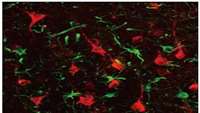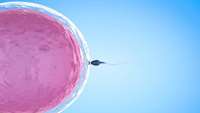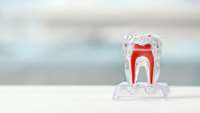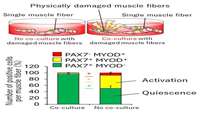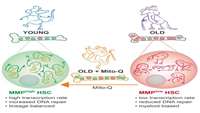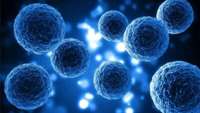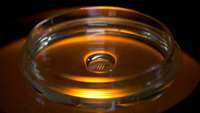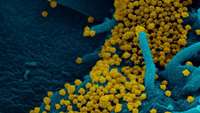First non-human primate study showing promise of gene therapy for stroke repair
Stroke is a leading cause of death and severe long-term disability with limited treatments available. A research team led by Prof. Gong Chen at Jinan University, Guangzhou, China recently reported the first non-human primate study demonstrating successful in vivo neural regeneration from brain internal glial cells for stroke repair.
Preserving fertility in female cancer patients and ageing populations
A Monash University study has uncovered the role DNA repair plays in preserving egg quality, offering hope for women whose eggs may be damaged through treatments such as radiation and chemotherapy.
Further evidence shows clinical viability of natural tooth repair method
Over the last five years scientists at King's College London have been investigating a method of stimulating natural tooth repair by activating cells in the tooth to make new dentine. In a paper published today in the Journal of Dental Research, they have found further positive evidence that the method has the potential to be translated into a direct clinical approach.
Damaged muscles don't just die, they regenerate themselves
Researchers building a model of muscle damage in a cultured system found that components leaking from broken muscle fibers activate ''satellite cells,'' which are muscle stem cells.
Novel approach identifies ‘young’ stem cells in old mice
In a collaborative study, researchers from Lund Stem Cell Center and University College London have developed a novel method of isolating ‘young’ stem cells still present in old mice.
Magnetic guidance improves stem cells' ability to treat occupational lung disease
Results of a study released today in Stem Cells Translational Medicine (SCTM) may point the way to a cure for a serious lung disease called silicosis that affects millions of workers worldwide.
Scientists take major step toward Angelman Syndrome gene therapy
Babies born with a faulty maternal copy of the UBE3A gene will develop Angelman syndrome, a severe neurodevelopmental disorder with no cure and limited treatments. Now, for the first time, scientists at the UNC School of Medicine show that gene editing and gene therapy techniques can be used to restore UBE3A in human neuron cultures and treat deficits in an animal model of Angelman syndrome.
Lab tests show risks of using CRISPR gene editing on embryos
A lab experiment aimed at fixing defective DNA in human embryos shows what can go wrong with this type of gene editing and why leading scientists say it’s too unsafe to try. In more than half of the cases, the editing caused unintended changes, such as loss of an entire chromosome or big chunks of it.
Has The Cellular Aging Master Circuit Been Discovered
Humans have long searched for the possibility to extend life and some to even become immortal. But when it comes down to it many consider this to just be a flight of fanciful dreams. But according to research this is not necessarily true. In recent years research is indicating that we can take steps to extend our healthspan and in turn longevity.
Case study details leukemia patient who shed infectious SARS-CoV-2 for at least 70 days
The majority of people infected with SARS-CoV-2 appear to actively shed infectious virus for about 8 days, but there is a wide range of variability from person to person.


